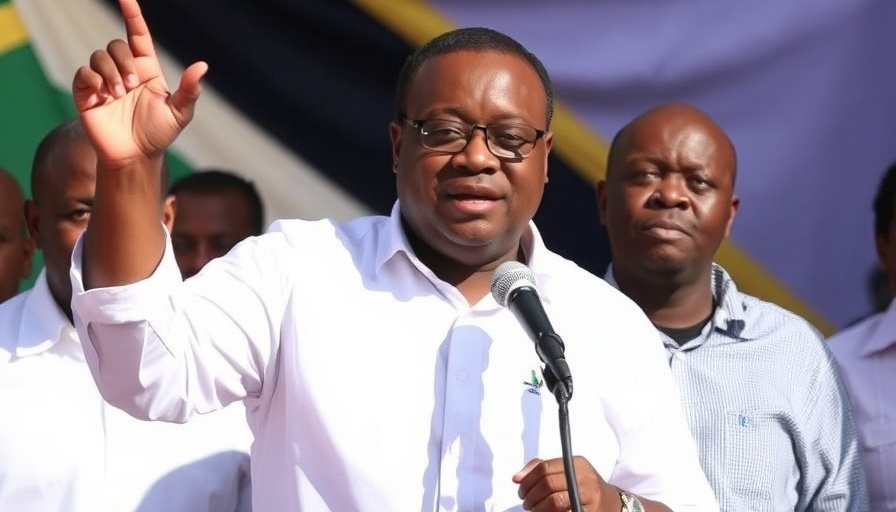
Arrest of Opposition Leader Raises Alarms Over Tanzania's Political Climate
Tundu Lissu, the newly elected chairperson of Tanzania's main opposition party, Chadema, was arrested as he concluded a public meeting in Mbinga District. This incident is more than just the arrest of a political figure; it symbolizes the growing tension in Tanzania's political landscape, especially as national elections loom later this year.
Targeting Political Opponents: A Disturbing Pattern
The government led by President Samia Suluhu Hassan has faced accusations from rights activists citing a systematic crackdown on political dissidents. As Lissu rallies support under the motto "No Reforms, No Election", his arrest on April 9, 2025, points to an increasingly repressive environment where dissent is stifled. Rights organizations and political analysts express concerns that such actions could undermine the democratic process in Tanzania.
The Historical Context: Political Violence and Challenges
Tundu Lissu's political journey has been fraught with danger; he previously survived an assassination attempt in 2017 where he was shot 16 times. This history raises worrying questions about the safety and freedom of expression for political leaders in Tanzania. The context of political violence not only impacts individual lives but also casts a shadow on the broader electoral integrity, affecting both local and international confidence in the Tanzanian political system.
Global and Domestic Implications of Tanzania's Political Climate
The arrest and continuing climate of political oppression resonate beyond Tanzania’s borders. For global investors and policymakers, these developments have significant implications for the African economy and regional stability. As the tension escalates, many are left to ponder how such actions may affect trade relations, governance, and overall economic policies between Africa and global partners.
Future Trends and What They Could Mean for Business Leaders and Investors
As Tanzania approaches its election, the political landscape is being scrutinized by local and global observers alike. Business leaders must consider the ramifications of a potentially volatile election environment on their investments and operations within the region. Will economic sanctions come into play if the government continues its current trajectory? The global community is watching closely, and any shifts in Tanzania's governance could lead to broader geopolitical consequences.
Call to Action
It’s imperative for stakeholders to advocate for political reforms that promote fair electoral practices and protect dissenting voices in Tanzania. Engaging in dialogue and supporting local organizations can contribute to building a more transparent political landscape, ultimately fostering a stronger economic environment for all.
 Add Row
Add Row  Add
Add 


 Add Row
Add Row  Add
Add 

Write A Comment